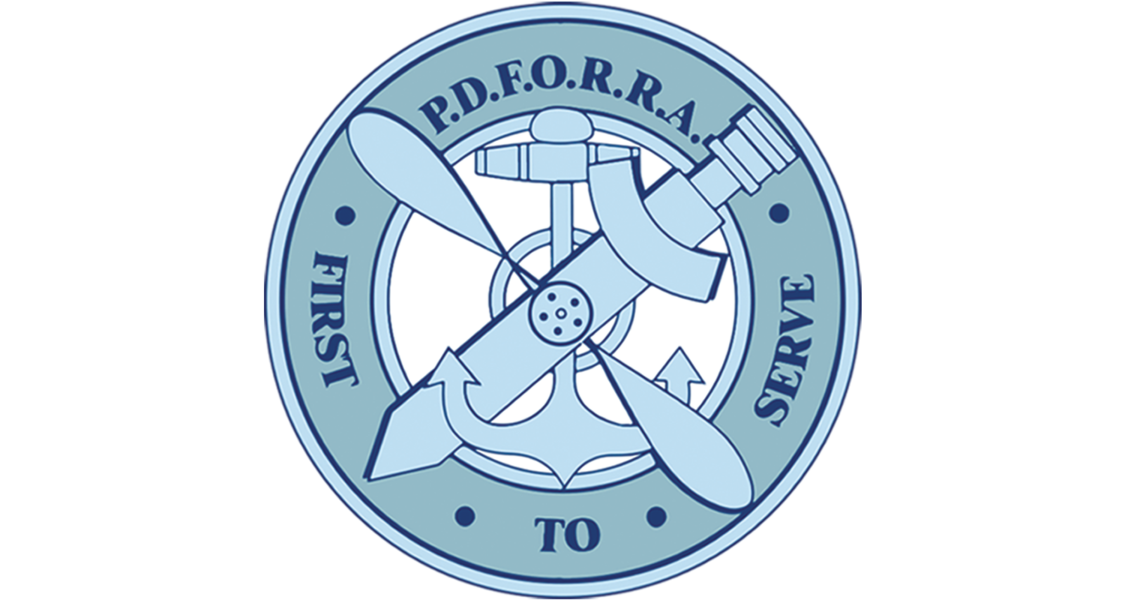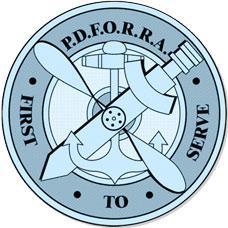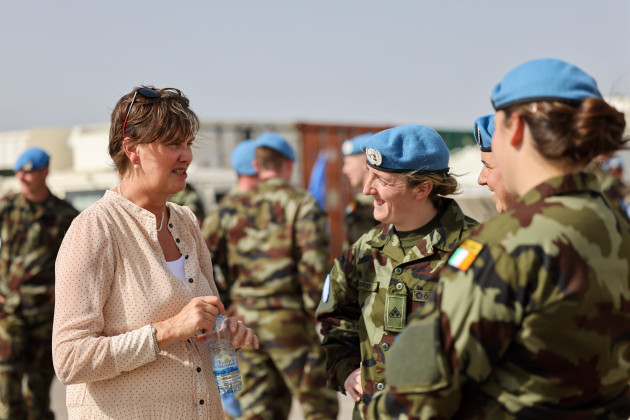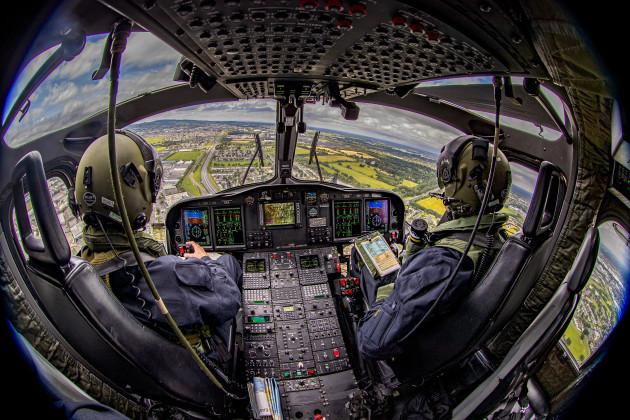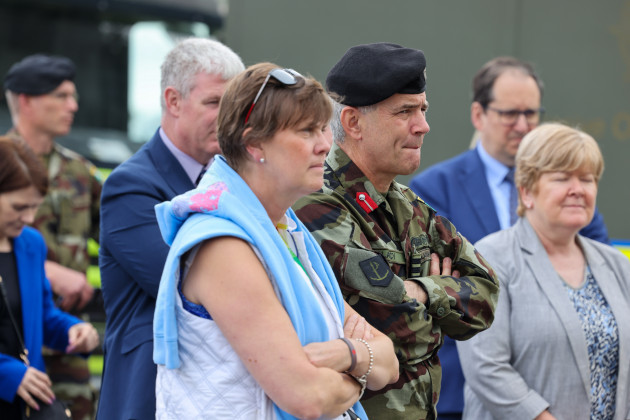The Capability Review of the Department of Defence was ordered in 2021 as part of the Civil Service Renewal Plan.

A NEW REPORT has found frustrations with funding management, a lack of a defined Defence policy document and “extremely strained” tensions between Defence Forces personnel and civilian leadership.
The Capability Review of the Department of Defence was ordered in 2021 as part of the Government’s broader strategy on their Civil Service Renewal Plan.
The review was carried out by senior civil servants from the Reform and Delivery office based at the Department of Public Expenditure and Reform (DPER).
The Minister for Defence Simon Coveney brought the document to Cabinet on Monday with a view to a later date for publishing.
The Journal obtained a copy of the Capability Report this week. It is the second study on the management of Ireland’s defence sector with the Commission on the Defence Forces (CODF).
The CODF action plan is likely to be brought before cabinet next week and examines the rejuvenation of the military side of the national security apparatus.
Holistic
The Capability Review takes a holistic look at the civilian management system in the Department.
While the executive summary speaks of the close working relationship between the Department and the Defence Forces, the study also lays bare a number of significant failings.
The findings state that the Department does not have a single readily available document that outlines Ireland’s policy on defence. The strategy is instead contained in a variety of published documents and in “long standing positions enunciated in EU and UN contexts”.
It also finds that interactions between staff and the Minister for Defence are hampered by the decentralised nature of the DOD, with offices in Kildare, Tipperary and Galway.
It said while the Minister works mostly in Dublin much of those involved in high level management, including the Secretary General, work outside of Dublin. This issue feeds into a difficulty of interactions with principal officers who are department heads.
“It is also causing the Secretary General challenges in terms of how the business of Defence is conducted,” the report found.
The maritime security area is particularly cumbersome, with a wide-ranging list of departments and agencies with responsibility for national maritime safety and port security. For example, there are “approximately” 70 critical national infrastructure operators legally designated to report incidents.
“There is a need for the fragmented state of maritime security to be resolved definitively,” the report stated.
Expenditure
As revealed by The Journal, a row had recently broken out between DOD and DPER over a multi-year funding requirement for the Commission on the Defence Forces action plan.
The capability report has found that this is much deeper and broader than just an issue about a future strategy. It found that senior departmental managers believe that DPER frequently adopts an “over-cautious approach” to issues which can often lead to “escalation in tension”.
It said this was contributing to a perception among military personnel that the DOD was not doing enough to advocate for their needs.
The DOD Capability Report also documented how relationships between senior Defence Forces officers and the civilian managers in DOD were “extremely strained in the relatively recent past”.
The authors found that there were strong indicators that the situation was improving and that there was a need for “diligence and leadership” to ensure that the civil and military relationship is “built on mutual respect and trust”.
While there were also concerns from the military side about slow decision making by civilian management.
There are also calls for a “modern fit-for-purpose” legislative framework to enable best possible management of Defence in Ireland.
Civilian morale
The DOD study found that morale was generally good in Newbridge and the Galway office but said that the Roscrea office was suffering from a morale deficit. Roscrea is the office which handles the Civil Defence organisation – this is a voluntary group managed by local authorities under the guidance of the DOD.
In regard to the Human Resourcing section within DOD there is strong criticism around the practice of HR managers also dealing with Freedom of Information requests.
In terms of staffing levels there is a significant concern of a so-called “retirement cliff” in which a large number of staff will leave the service together due to age.
The use of HR staff in the developing of FOI disclosures is blamed on the Department’s “struggles capacity wise” to deal with issues.
It also lays out problems of so-called “grade drift” – this is where senior managers get pulled into dealing with matters normally handled by lower-ranked members of staff.
The study identifies this is often caused by a cultural difference between the civilian staff and Defence Forces officers and the military tradition of dealing with people of equal rank.
Procurement
The report also looks at the Department’s management of large-scale investments and finds that the current process of evaluating procurement is not fit for purpose.
It said this creates “a risk of the chosen option not being the most appropriate from the perspectives of efficiency and/or effectiveness”.
It also criticised the lack of the required amount of staff to deal with such investments, and recommended the formation of a dedicated unit.
The study finds that the Department depends heavily on DPER to carry out spending reviews and the “self-reflection exercises” carried out on the conclusion of projects are of “limited value”.
There are also concerns about the quality of data from the Defence Forces. The department does not have a data management policy and the authors said this sends a “strong signal” erroneously that such data does not matter to both the civil servants in the DOD and the military leaders.
The report said that there is “much potential” to improve that situation and that any effort would reap “considerable efficiency and effectiveness”.
One key finding is around fisheries protection work and how there needs to be greater harmonisation between the data gathered by the Air Corps and the Naval Service on their monitoring operations.
In regard to pay and industrial relations, the report found that there is a serious problem with interactions between Defence Forces’ personnel and the civilian leadership in the DOD.
“There is a palpable sense of frustration among many of the Defence Forces’ interviewees regarding what they perceive as the Department’s failure to properly and effectively represent their issues and concerns across the broader Government system.
It said this is particularly the case in relation to the Department’s dealings with the Department of Public Expenditure and Reform on issues relating to pay and conditions, as well as recruitment and retention.
The report went onto say that the “reality” was that there were regular interactions between DPER and DOD but that the department was struggling to “have its voice heard”.
The report said that it was confident that the DOD was, in partnership with its military colleagues, in a strong position to “bring about impactful change”.
“A new Secretary General and Chief of Staff are in place and it is clear to the team who undertook this review that they are both supported by highly committed, hardworking and talented managers and staff across all grades and ranks.
“Looking to the future, implementation of the recommendations set in this Report will enable the Department to build on its existing strengths as it seeks to address the considerable challenges facing the defence sector,” it said.
